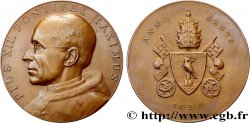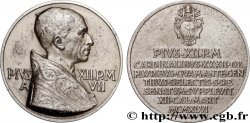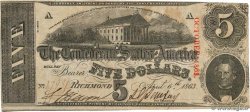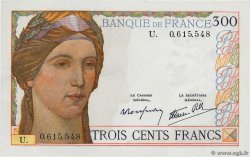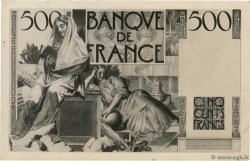Live auction - fwo_904219 - VATICAN - PIUS XII (Eugenio Pacelli) Série 8 monnaies 1958 Rome
You must signin and be an approved bidder to bid, LOGIN TO BID. Accounts are subject to approval and the approval process takes place within 48 hours. Do not wait until the day a sale closes to register. Clicking on "BID" constitutes acceptance of the terms of use of cgb.fr private live auctions.
Bids must be placed in whole Euro amounts only. The sale will start closing at the time stated on the item description; any bids received at the site after the closing time will not be executed. Transmission times may vary and bids could be rejected if you wait until the last second. For further information check the Live auction FAQ
All winning bids are subject to a 18% buyer’s fee.
All winning bids are subject to a 18% buyer’s fee.
| Estimate : | 100 € |
| Price : | 50 € |
| Maximum bid : | 50 € |
| End of the sale : | 09 April 2024 19:51:27 |
| bidders : | 1 bidder |
Type : Série 8 monnaies
Date: 1958
Mint name / Town : Roma
Quantity minted : 3000
Edge : en relief
Catalogue references :
Obverse
Reverse
Commentary
Ce coffret comprend :
- 1, 2 et 5 Lire en aluminium
- 10, 50 et 100 Lire en cupro-nickel
- 20 lire en bronze-alluminium
- 500 Lire en argent.
- 1, 2 et 5 Lire en aluminium
- 10, 50 et 100 Lire en cupro-nickel
- 20 lire en bronze-alluminium
- 500 Lire en argent.







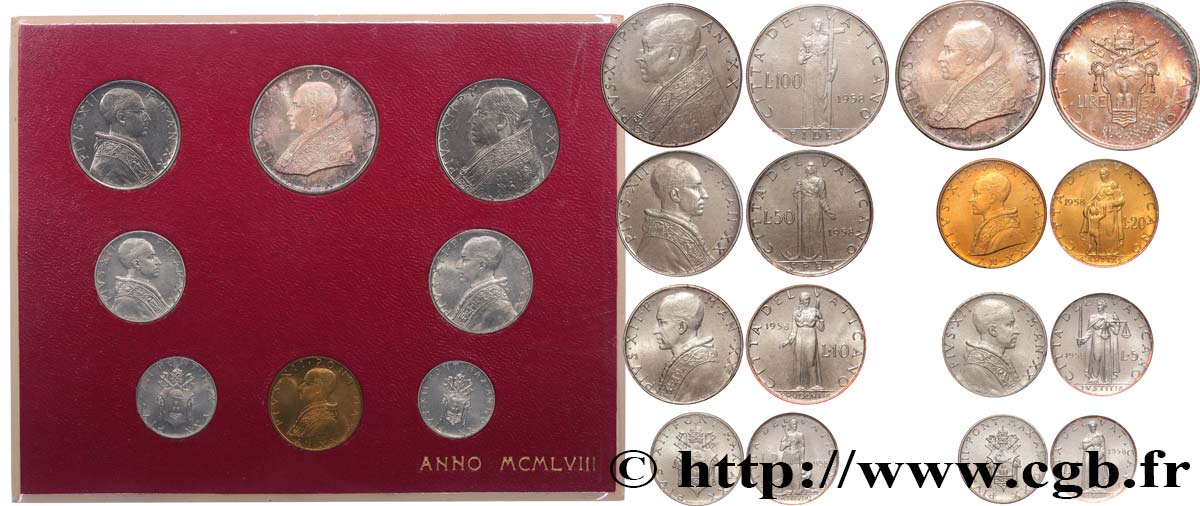
 Report a mistake
Report a mistake Print the page
Print the page Share my selection
Share my selection Ask a question
Ask a question Consign / sell
Consign / sell
 Full data
Full data
